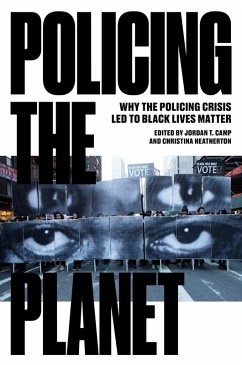
The Panthers Can't Save Us Now (eBook, ePUB)
Debating Left Politics and Black Lives Matter

PAYBACK Punkte
5 °P sammeln!
In the wake of the mass protests over the police murder of George Floyd, nearly every major consumer brand proclaimed their commitments to antiracism, often with new ad campaigns to match their Tweets. Despite the historic scale of protests and ruling class approval, the most substantive reforms advanced by Black Lives Matter remained out of reach. Still less was achieved around policies that might help the most dispossessed and precarious Americans. Why has anti-racism been such a powerful source of mobilization but such a poor means of building political opposition capable of winning big ref...
In the wake of the mass protests over the police murder of George Floyd, nearly every major consumer brand proclaimed their commitments to antiracism, often with new ad campaigns to match their Tweets. Despite the historic scale of protests and ruling class approval, the most substantive reforms advanced by Black Lives Matter remained out of reach. Still less was achieved around policies that might help the most dispossessed and precarious Americans. Why has anti-racism been such a powerful source of mobilization but such a poor means of building political opposition capable of winning big reforms?
Writing against the grain of popular left sentiments, Johnson cautions against the revival of ethnic politics. Instead, he calls for broad-based left politics as the only viable means for ending the twin crises of racial inequality and police violence. Redistribution, public goods, and multi-ethnic working-class solidarity are the only viable response to the horrors of police violence and mass incarceration. It just so happens that fighting the conditions that make crime and violence inevitable is also the means by which we can build a working-class majority and a more equal and peaceful nation.
Writing against the grain of popular left sentiments, Johnson cautions against the revival of ethnic politics. Instead, he calls for broad-based left politics as the only viable means for ending the twin crises of racial inequality and police violence. Redistribution, public goods, and multi-ethnic working-class solidarity are the only viable response to the horrors of police violence and mass incarceration. It just so happens that fighting the conditions that make crime and violence inevitable is also the means by which we can build a working-class majority and a more equal and peaceful nation.
Dieser Download kann aus rechtlichen Gründen nur mit Rechnungsadresse in A, D ausgeliefert werden.













